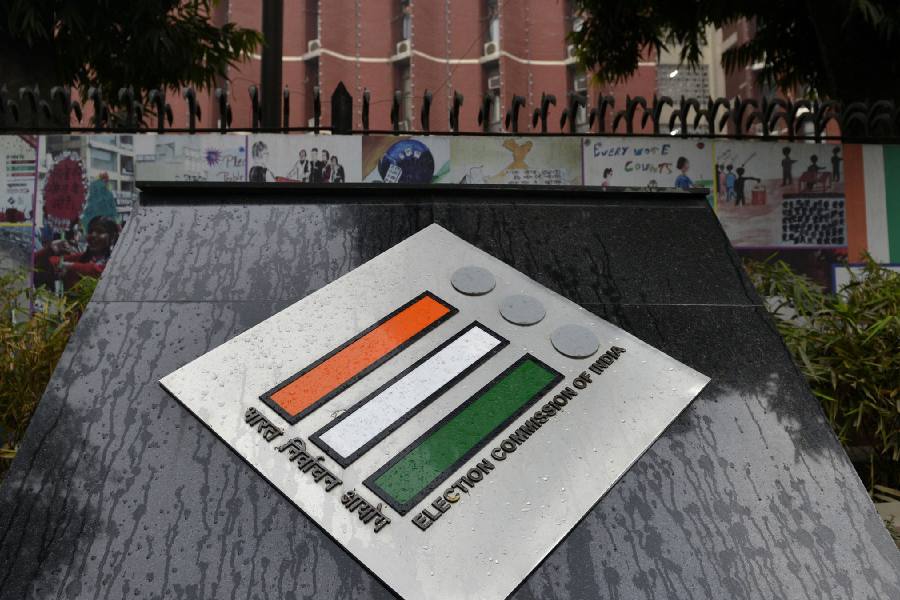India’s longest general election since its first in 1952 ended on Saturday, with 57 seats across seven states and one Union Territory voting in the last and seventh phase and the Election Commission hailing the unexpectedly high turnouts in Kashmir and Maoist-affected Bastar.
The counting is scheduled for Tuesday, but Prime Minister Narendra Modi jumped the gun and claimed victory on the strength of exit poll numbers that unanimously predicted a return to power for the NDA. Exit poll projections have been both right and wrong in the past.
The turnout figure at 8.45pm on Saturday was 59.45 per cent, with Bengal topping at 69.89 per cent and Bihar bringing up the rear with 50.79 per cent. These 57 seats had registered a turnout of around 64.5 per cent in 2019.
The polling was largely peaceful barring clashes between political parties in several parts of Bengal. A 70-year-old died in a voter queue in Ballia, Uttar Pradesh. Deaths of several polling staff from the severe heat were reported in Bihar and eastern Uttar Pradesh.
The Election Commission said the counting of votes for the general election, the Assembly polls in Andhra Pradesh and Odisha, and Assembly by-elections would be held from 8am on June 4.
It said counting for the Assembly polls in Sikkim and Arunachal Pradesh would start at 6am on June 2.
“The counting trends and results, as per data entered by RO/ARO for AC/PC (Assembly and parliamentary constituencies) will be available on the ECI website at the URL https://results.eci.gov.in/ as well as on the Voter Helpline App, both iOS and Android mobile apps,” the poll panel said.
The exit poll projections, which began coming out after 6.30pm, predicted a sizeable majority for the NDA, riding on surprise gains in the south and the east while retaining its domination in most of the heartland states.
However, there can be marginal to substantial losses for the BJP in Bihar, Jharkhand, Rajasthan and Haryana, which the party had swept in 2019, the predictions said.
A few projected the BJP to emerge as the number one party in 42-seat Bengal, with significant gains over its 2019 tally of 18 seats, pushing the ruling Trinamool Congress to second spot.
Some exit polls predicted gains for the BJP in BJD-ruled Odisha, too, where the saffron party had won 8 of the 21 seats the last time.
The BJP is also projected to win a couple of seats in the southern states of Tamil Nadu and Kerala, where it has had very little presence. The BJP has never won even one Lok Sabha seat in Kerala, a state dominated by the Congress and the Left.
The exit polls predicted a shocker for the Congress in Karnataka, a state it had wrested from the BJP last year. According to the projections, the BJP and ally JDS would win most of the state’s 28 Lok Sabha seats.
In the key state of Maharashtra, most exit polls showed the BJP holding on to its 2019 tally of 23.
In the country’s largest state, Uttar Pradesh, the BJP is projected to improve its tally marginally from its 2019 score of 62 out of 80 seats despite a strong fight put up by the Congress-Samajwadi Party alliance.
It’s unusual for a Prime Minister to claim victory ahead of the counting of votes but Modi, who had been meditating in Kanyakumari since the end of campaigning on Thursday evening, seemed not to care for such niceties.
“I can say with confidence that the people of India have voted in record numbers to re-elect the NDA government,” he said in a series of posts on X as the exit poll numbers were released.
“They have seen our track record and the manner in which our work has brought about a qualitative change in the lives of the poor, marginalised and downtrodden.”
The poll panel highlighted several bright spots of this election.
“Jammu and Kashmir shone bright with a voter turnout of 58.58% which is highest in the last 35 years. The Kashmir valley registered a voter turnout of 51.05%, a massive jump of over 30 points from the previous elections in the 3 PCs that went to polls in the Valley,” it said.
It added that 102 villages in Maoist-affected Bastar hosted polling stations and “saw unprecedented voting”. Bastar witnessed “a remarkable” turnout of 68.29 per cent, it said.










